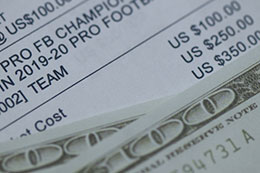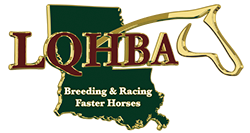Louisiana Lawmakers OK Sports Betting Rules, Horse Racing To Get Cut

"We�re simply putting in place the rules and regulations for something that our constituents have told us they wanted," Sen. Rick Ward, R-Lake Charles, said earlier in the debates.
Last fall, 55 of 64 parishes voted in favor of some form of sports betting, and over 64% of voters in the state approved the measure.
Ward and three other Republicans spearheaded the writing of how Louisiana would welcome legal wagering on sports events. Sen. Ronnie Johns, R-Lake Charles, and Senate President Page Cortez, R-Lafayette, authored the bills along with Rep. John Stefanski, R-Crowley, authored the bills and co-sponsored other measures.
Louisiana will allow betting in-person or online and to allow bars and restaurants to have kiosks similar to video poker machines. The nine parishes that did not favor sports gambling will be �geofenced� out from participating in online wagering.
The state will begin by granting 20 sport wagering licenses for which private companies can apply. The 16 land-based casinos and four racetracks will be first in line for the permits, followed by truck-stop casinos.
The bill also gives money to supplement Thoroughbred and Quarter Horse racing purses in the state.
Off-track horse-racing betting parlors also received the ability to hold electronic gambling machines to wager on races through Senate Bill 209 written by Gary Smith, D- Norco. Supporters say it will benefit the horse racing industry.
Applications for the license vary in price, the costliest being a land-based application at $250,000 and a five-year license of $500,000. Retail stores can expect to pay $10,000 for an application and $12,500 for a five-year permit. There is an annual fee of $15,000 for permit holders, the same as slot machines or video poker machines.
The state will also collect a 10% tax from the companies offering in-person gambling. The tax will be levied on the revenue made from betting minus the money paid out to winning patrons. Online gaming companies will face a similar 15% tax.
Sixty-percent of the money going back to the state�s general fund and the rest to other reserves. The Early Childhood Education Fund receives 25% of the collected money. A 12% cut of the revenue from bets on real sports will be distributed back to the parishes where it was collected, and at least $500,000 will go into Behavioral Health and Wellness Fund, giving aid to gambling addicts. Two percent will go to the Disability Affairs Trust Fund.
Fantasy sports gambling, a separate form of betting that focuses on teams created by bettors who mix and match players from real teams, will deposit all of its revenue into the fund.
Officials forecast that betting sports gambling in the state could start before the upcoming football season and on fantasy sports by the fall.
Gamblers must be 21 years of age and located in the 55 parishes that approved the 2020 measure. Companies are not allowed to take bets on events in which most players are under 18 or on competitive video game contests.






